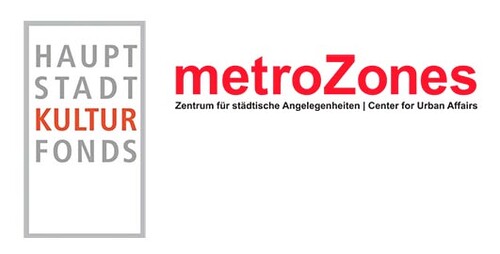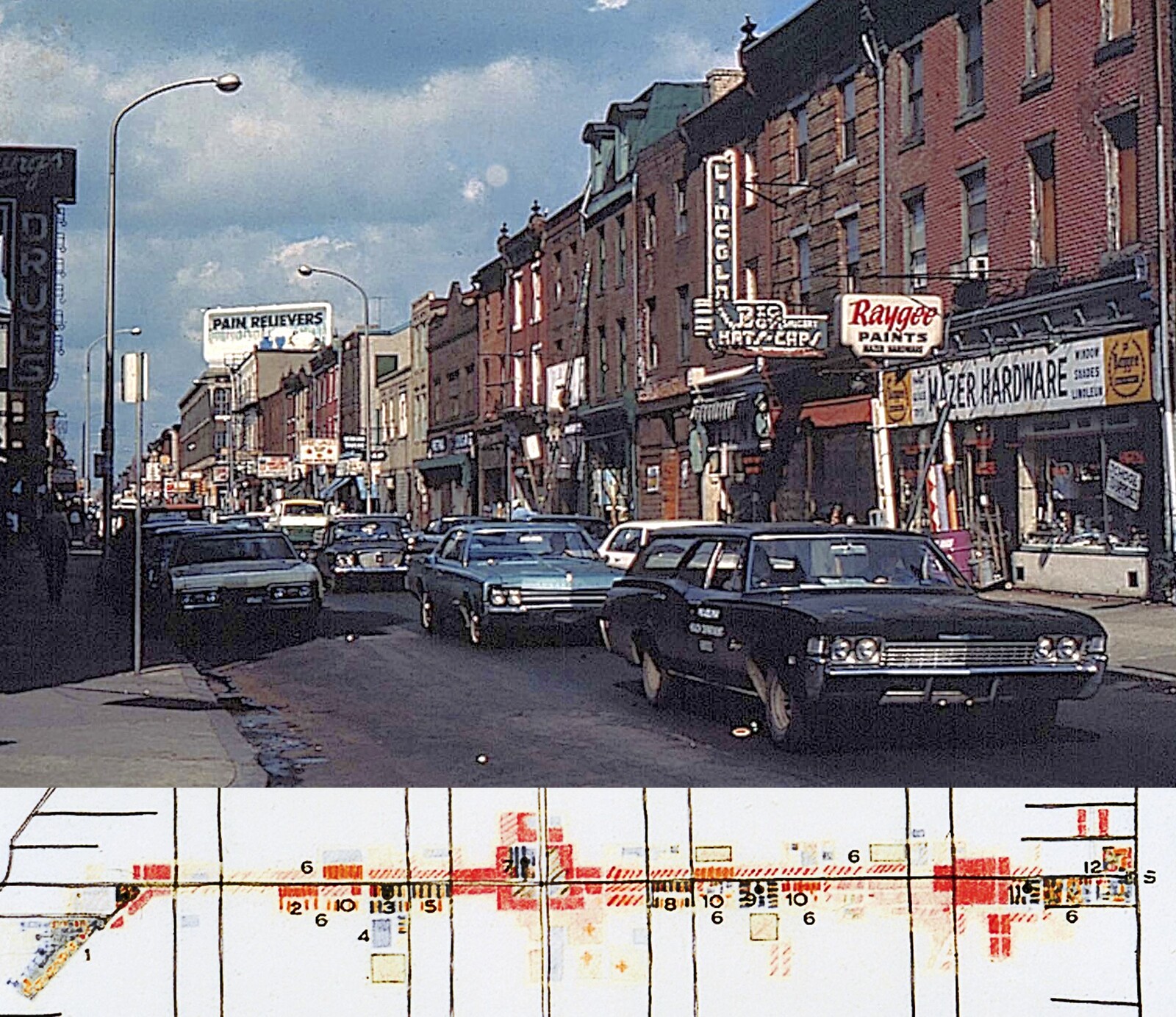Recording Margins of Conflict
April 16–June 13, 2021
What kind of images do mappings of urban spaces produce, what contribution do they make to the exploration of spatial constellations? And: what is, can and does mapping mean at all? In the exhibition and an accompanying program and booklet, metroZones puts both its practices and positions and those of invited artists up for discussion.
About the exhibition
Mapping as an image and space-producing practice is at the center of the exhibition Mapping Along at Kunstraum Kreuzberg/Bethanien. Selected mappings based on explorations undertaken by mZ are brought together with invited international positions to be discussed. The focus is on the materialization of spatial conflict zones and contradictions: for example, the urban experience of refugees or migrants and their appropriation of spaces, the invasion of the urban by platform economies—highly relevant due to the planned Amazon Tower at Warschauer Brücke in Berlin—or the everyday cultures of urban peripheries.
In recent years, mZ has increasingly worked with recording procedures in its research and artistic practice. On the one hand, these mapping approaches were integrated into specific processes of exploration; on the other, they produced independent spatial images that were further processed in various forms, as an exhibition or wallpaper, as clothing or video. Thus, mapping became a method for mZ which as a collaborative process contributed to the (self-)understanding of the Many and at the same time enabled a specific image production.
It is about mapping, not cartography: not so much the product as the process of recording in all its contradictions, for example in terms of legibility, visual languages, or the inscription of time and power. It is about establishing relations, about translation and reconstruction, memory and discourse, about mapping as knowledge production and aesthetic practice.
In Mapping Along, a wide variety of formats—on paper, on cloth or onscreen, as sound stations or discourse wallpapers, but also in sketchbooks or architectural models—are arranged into a multi-layered parcours. Thereby, the mZ projects become accessible as spatial chapters—Hellersdorf Research, Refugee Complex, City as Byte or the mZ School for Urban Action—and are combined with selected guest positions so that different procedures and aesthetics can be seen.
With works by metroZones, Larissa Fassler, Christian Hanussek/Gerda Heck, Im Dissens? (Dagmar Pelger/Stefan Endewardt/Joerg Franzbecker), Daniel Kötter, Diana Lucas-Drogan, Peter Spillmann/MigMap, Pedro Ceñal Murga, Katharina Pelosi, Christoph Schäfer, Denise Scott Brown/Jeremy Tenenbaum, and Tytus Szabelski with Inicjatywa Pracownicza & Activists vs. Amazon in Berlin
Supplementary program & booklet
The exhibition is accompanied by a series of talks (mZ.saloons), film screenings, and workshops (mZ School of Urban Action) that examine the practices, aesthetics, and politics and also the margins from a variety of perspectives. In the mZ schools, the production and readings of mappings can also be practically explored and discussed. In addition to the artists represented in the exhibition, other researchers, artists and activists will participate in the debates, including Nishat Awan, Sergio Beltrán-García, Rahima Gambo, Guerilla Architects, Agata Lisiak, Simon Sheikh, Monika Streule, and others.
A supplement in the newspaper taz provides an overview of the concept and program, and a booklet contextualizes exhibits and positions in more detail.
metroZones – Center for Urban Affairs was founded in Berlin in 2007 as an independent association for critical urban research. mZ (Jochen Becker, Christian Hanussek, Anne Huffschmid, Stephan Lanz, Diana Lucas-Drogan, Oliver Pohlisch, Katja Reichard, Erwin Riedmann, Kathrin Wildner) combines transdisciplinary and artistic research with knowledge production, cultural practice and political intervention at the interface of art, academia and politics. Mapping Along is curated by Becker/Hanussek/Huffschmid/Lucas-Drogan/Wildner
Kunstraum Kreuzberg/Bethanien
T +49 30 90298 1454
Director: Stéphane Bauer
Project team: Dani Hasrouni, Markus Hemann, Kristoffer Holmelund, Sofia Jamatte, Linnéa Meiners, Sofía Pfister, Nadia Pilchowski, Jorinde Splettstößer
The project has been supported with funds from the Hauptstadtkulturfonds, the Senatsverwaltung für Kultur und Europa and the Fonds Ausstellungsvergütungen Bildende Künstlerinnen und Künstler.

